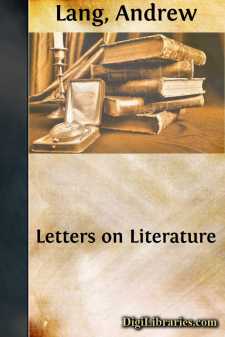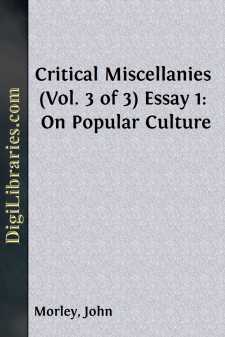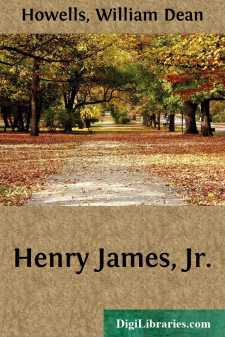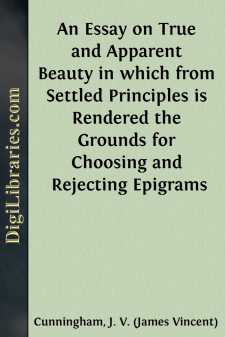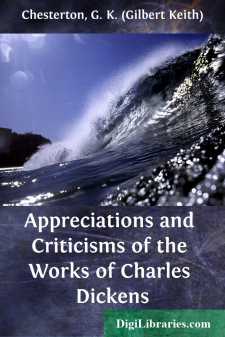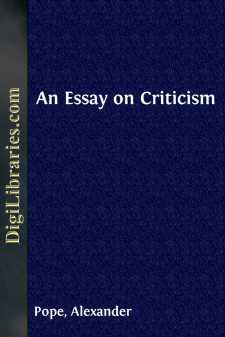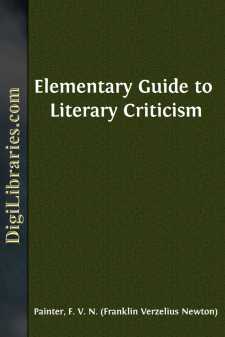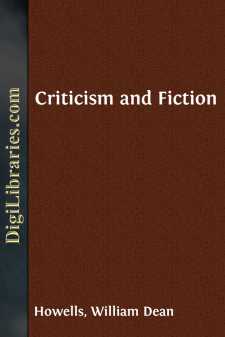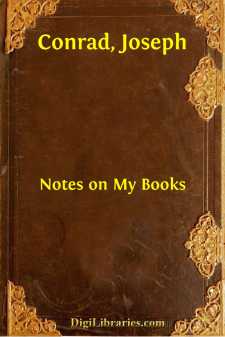Literary Criticism
- American 18
- Ancient and Classical 3
- Asian 1
- Australian & Oceanian 1
- Books & Reading 8
- Caribbean & Latin American 2
- Drama 2
- English, Irish, Scottish, Welsh 49
- European 7
- General
- Horror 1
- Humor 2
- Jewish 2
- Medieval 2
- Middle Eastern 3
- Poetry 7
- Renaissance 6
- Russian & Former Soviet Union 1
- Shakespeare 27
General Books
Sort by:
by:
Andrew Lang
INTRODUCTORY: OF MODERN ENGLISH POETRY To Mr. Arthur Wincott, Topeka, Kansas. Dear Wincott,—You write to me, from your “bright home in the setting sun,” with the flattering information that you have read my poor “Letters to Dead Authors.” You are kind enough to say that you wish I would write some “Letters to Living Authors;” but that, I fear, is out of the question,—for me. A...
more...
by:
John Morley
The proceedings which have now been brought satisfactorily to an end are of a kind which nobody who has sensibility as well as sense can take a part in without some emotion. An illustrious French philosopher who happened to be an examiner of candidates for admission to the Polytechnic School, once confessed that, when a youth came before him eager to do his best, competently taught, and of an apt...
more...
The events of Mr. James's life—as we agree to understand events—may be told in a very few words. His race is Irish on his father's side and Scotch on his mother's, to which mingled strains the generalizer may attribute, if he likes, that union of vivid expression and dispassionate analysis which has characterized his work from the first. There are none of those early struggles with...
more...
INTRODUCTION The following essay forms the introduction to a famous anthology of the seventeenth century, the Epigrammatum delectus, a Port-Royal textbook published at Paris in 1659. The essay was twice translated into French in the same century, but the use of the text in France did not survive, apparently, the downfall of the Port-Royal movement. It was, however, later adopted by Eton College, where...
more...
INTRODUCTION These papers were originally published as prefaces to the separate books of Dickens in one of the most extensive of those cheap libraries of the classics which are one of the real improvements of recent times. Thus they were harmless, being diluted by, or rather drowned in Dickens. My scrap of theory was a mere dry biscuit to be taken with the grand tawny port of great English comedy; and...
more...
by:
Alexander Pope
ALEXANDER POPE. This eminent English poet was born in London, May 21, 1688. His parents were Roman Catholics, and to this faith the poet adhered, thus debarring himself from public office and employment. His father, a linen merchant, having saved a moderate competency, withdrew from business, and settled on a small estate he had purchased in Windsor Forest. He died at Chiswick, in 1717. His son shortly...
more...
CHAPTER I NATURE AND OFFICE OF CRITICISM 1. Purpose of Literary Study. The study or reading of literature ordinarily has a threefold purpose,—knowledge, pleasure, and culture. This purpose shows us both the character of the literature which should be read and the manner in which it should be read. As a rule we should read only books of recognized excellence, and read them with sympathetic...
more...
The question of a final criterion for the appreciation of art is one that perpetually recurs to those interested in any sort of aesthetic endeavor. Mr. John Addington Symonds, in a chapter of 'The Renaissance in Italy' treating of the Bolognese school of painting, which once had so great cry, and was vaunted the supreme exemplar of the grand style, but which he now believes fallen into...
more...
by:
Henry Jenner
PREFACE This book is principally intended for those persons of Cornish nationality who wish to acquire some knowledge of their ancient tongue, and to read, write, and perhaps even to speak it. Its aim is to represent in an intelligible form the Cornish of the later period, and since it is addressed to the general Cornish public rather than to the skilled philologist, much has been left unsaid that...
more...
by:
Joseph Conrad
ALMAYER'S FOLLY I am informed that in criticizing that literature which preys on strange people and prowls in far-off countries, under the shade of palms, in the unsheltered glare of sunbeaten beaches, amongst honest cannibals and the more sophisticated pioneers of our glorious virtues, a lady—distinguished in the world of letters—summed up her disapproval of it by saying that the tales it...
more...


